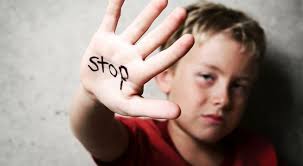abuse
英 [əˈbjuːz]
美 [əˈbjuːz]
- n. 滥用;虐待;辱骂;弊端;恶习,陋习
- vt. 滥用;虐待;辱骂
- n. (Abuse)人名;(英)阿比斯
使用频率:

记忆方法
将“abuse”记忆为“ab”(意为否定)+“use”(意为使用),想象一种“滥用”(不正确使用)的情况,以此来加强记忆。
以上内容由AI生成, 仅供参考和借鉴
中文词源
abuse 滥用
前缀ab-, 非,不好。use,使用。
英语词源
- abuse
-
abuse: see use
- abuse (v.)
- early 15c., "to misuse, misapply," from Middle French abuser, from Vulgar Latin *abusare, from Latin abusus "an abusing, using up," past participle of abuti "use up," also "misuse," from ab- "away" (see ab-) + uti "use" (see use). Of sexual situations from early 15c., but originally incest, homosexuality, prostitution, etc.; meaning "to misuse sexually, ravish" is from 1550s. Specifically of drugs, from 1968. Related: Abused; abusing.
- abuse (n.)
- mid-15c., "improper practice," from Old French abus (14c.), from Latin abusus (see abuse (v.)). Earlier in Middle English was abusion "wicked act or practice, shameful thing, violation of decency" (early 14c.), "an insult" (mid-14c.).
权威例句
- 1. West was wilfully blind to the abuse that took place.
- 韦斯特对发生的虐待行为故意视而不见。
- 2. A small group of youths stayed behind to heckle and shout abuse.
- 一小群小青年没走,在起哄、叫骂。
- 3. They were jostled and subjected to a torrent of verbal abuse.
- 他们被推来搡去,受到大肆的谩骂攻击。
- 4. The abuse of women needs to be treated seriously and sensitively.
- 虐待妇女问题需要得到严肃而认真的处理。
- 5. John received constant physical and psychological abuse from his father.
- 约翰不断遭到父亲身体和心理上的双重虐待。